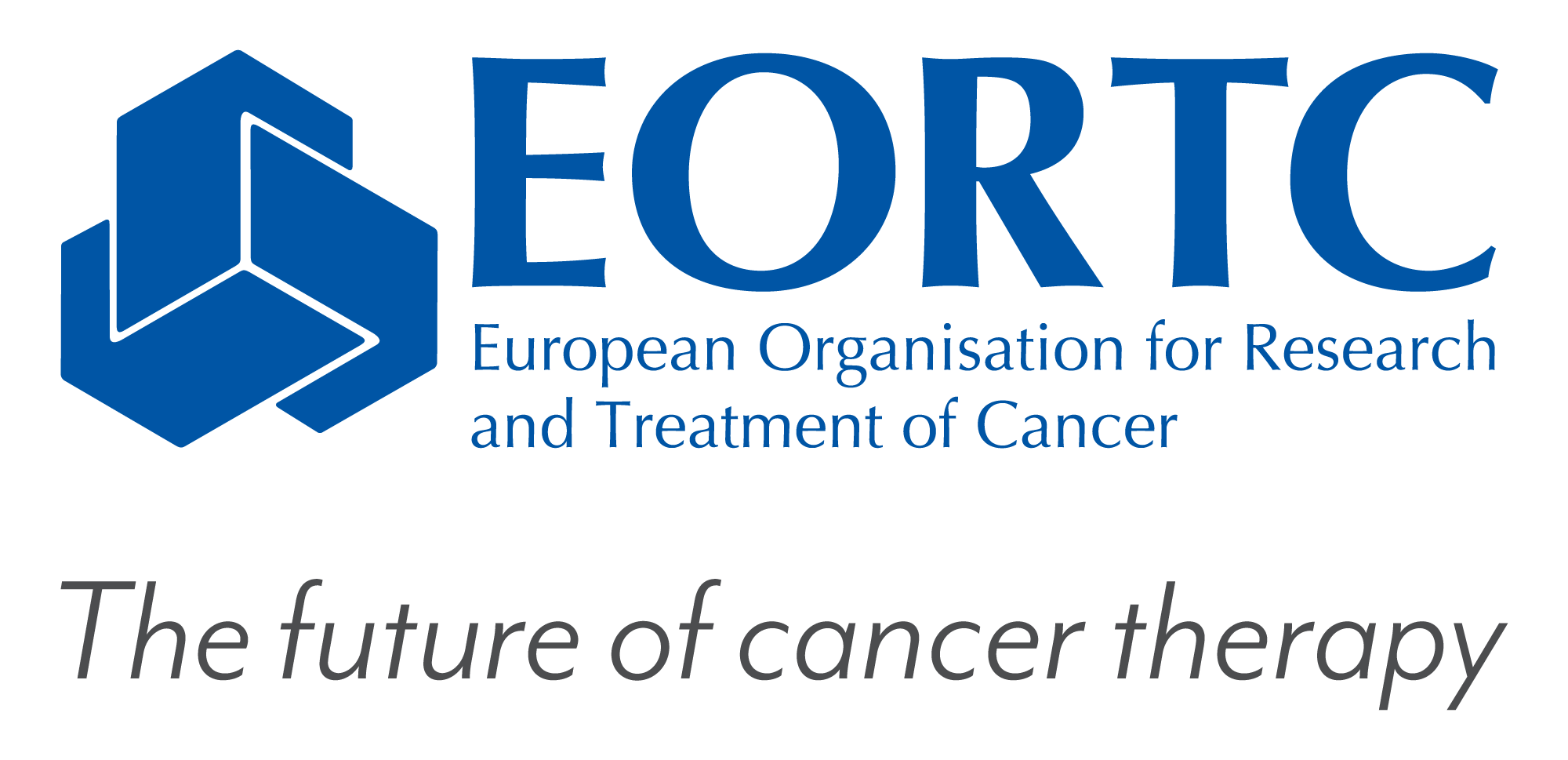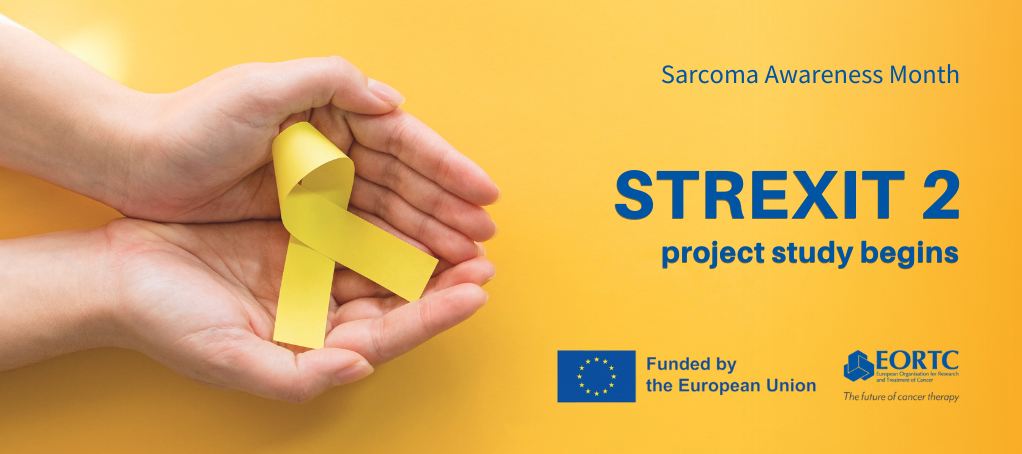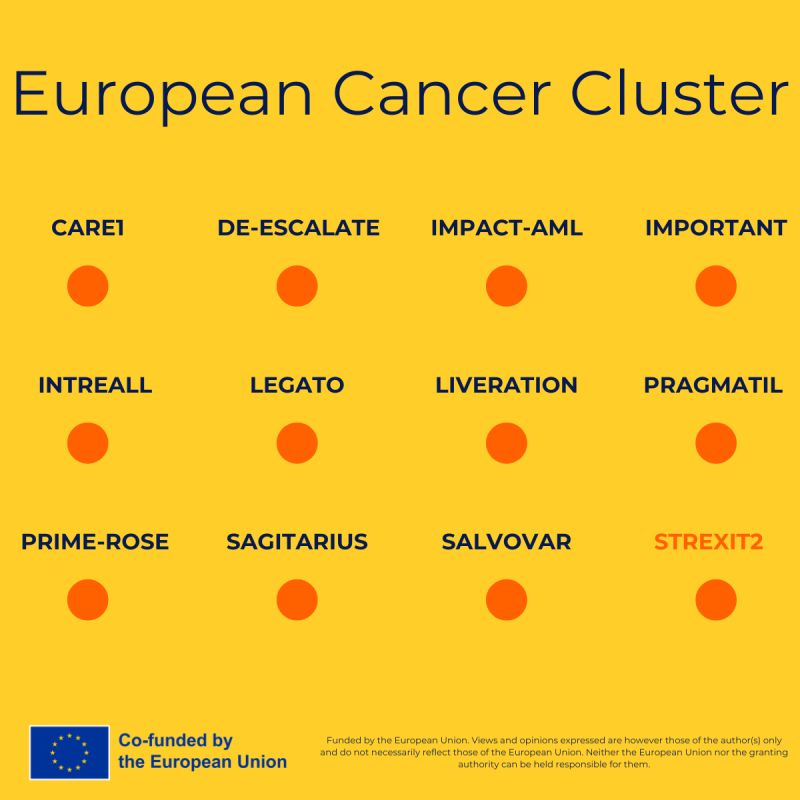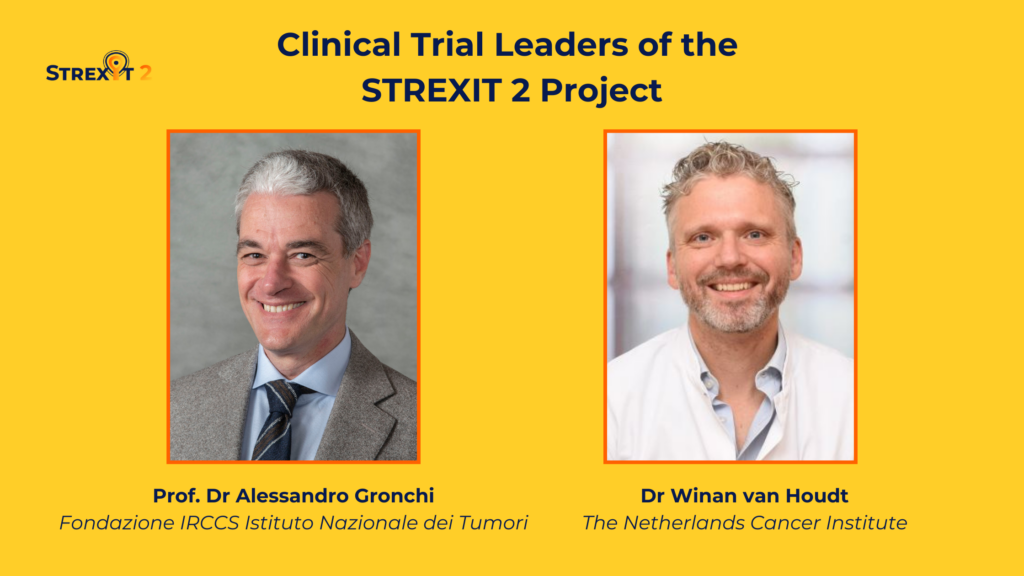On Sarcoma Awareness Month, the European Organisation for Research and Treatment of Cancer (EORTC) and the Syreon Research Institute are delighted to announce the official start of STREXIT2, a complementary observational study of the EORTC 1809 STRASS2 clinical trial focusing on high-risk retroperitoneal sarcoma.
STREXIT2 is one of three research projects coordinated by the EORTC, alongside DE-ESCALATE and LEGATO, which have recently received funding from the EU Horizon programme. The study will span a duration of five years.
About Retroperitoneal Sarcomas
Sarcomas are a rare and aggressive form of cancer that affects the body’s soft tissues. Specifically, retroperitoneal sarcomas impact the abdomen and constitute about 15% of all soft-tissue sarcomas. Retroperitoneal sarcoma is an extremely rare and aggressive tumour occurring in 0.5 to 1.0 per 100,000 individuals in the population. Its diagnosis is challenging, and treatment usually involves complex surgery. Certain subtypes, such as high-grade dedifferentiated liposarcoma and leiomyosarcoma, present particularly high risks, with a 70% mortality rate five years after treatment. There is a clear need for new and better treatments for retroperitoneal sarcoma, which is generally treated with just surgery alone.
About STRASS2/STREXIT2
STRASS2 is a multicentre, open-label phase III international clinical trial that investigates treatment options (neoadjuvant chemotherapy followed by surgery versus surgery alone) for patients with high-risk retroperitoneal sarcoma (RPS). This is the first trial looking into the potential benefits of chemotherapy before surgery to improve disease control and survival in patients burdened by this rare cancer.
In June 2023, work on the set-up of a new complementary observational study called STREXIT2 officially started. This complementary observational study will be added to the ongoing STRASS2 clinical trial to gather real-world data from patients who do not meet the eligibility criteria for STRASS 2. The objective is to compare the clinical outcomes between STRASS2 and STREXIT2 and to explore the possible combination of STRASS2 and matched STREXIT2 patients’ data. This will strengthen the results obtained from the randomised clinical trial data and increase the power of subgroup analyses.
The incorporation of real-world data (STREXIT2) into the trial (STRASS2) will enrich the study population and provide a pragmatic approach to addressing crucial causal questions within a rare cancer population.
A health economics analysis will be performed assessing the economic value of different treatment scenarios. A positive outcome of the trial will help to understand the clinical added value and cost-effectiveness of neoadjuvant chemotherapy before surgery for high-risk retroperitoneal sarcoma.
The STRASS2/STREXIT2 study will run in several countries in Europe, including Cyprus, the Czech Republic, Denmark, France, Germany, Italy, the Netherlands, Poland, Slovakia, Spain, and the UK. Moreover, intergroup collaborations have been set in place with Canada (Canadian Cancer Trials Group), Australia (Australian and New Zealand Sarcoma), and the United States (ECOG-ACRIN Cancer Research Group).
Learn more about EORTC 1809 – STRASS2/ STREXIT2 here.








